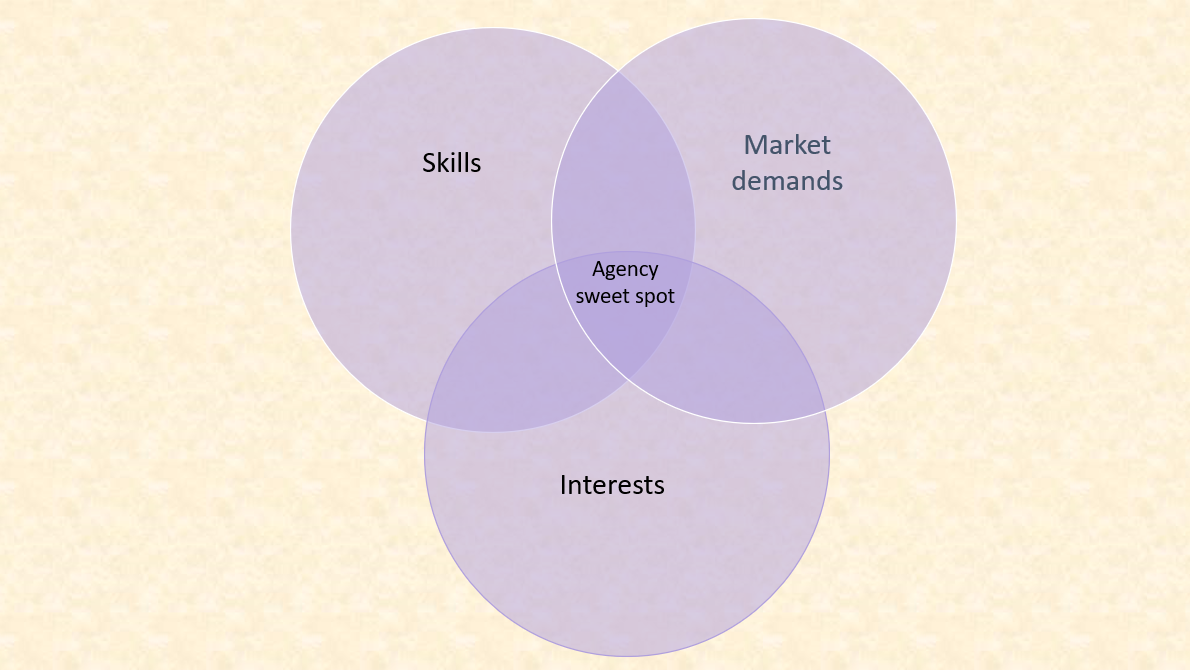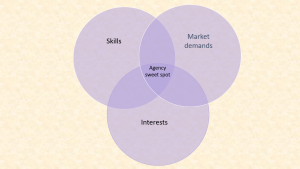
There are three steps involved in setting up a digital marketing agency. Setting up your business, how to get clients for digital marketing, and finally, retaining them. The first one is simple and the easiest, and the third depends on how well you have aced the second step. The same three steps are also true for individuals eyeing to set up their digital marketing portfolio.
Let’s just be clear on one thing. Onboarding for a marketing agency is kind of hard. And then there are those who question: “Umm.. do I even need marketing?” They are the peskiest people unless you successfully convince them that they need marketing for their businesses, and they become your clients. Then they are the best.
Marketing is a huge pie. But here’s the big question for you who is eyeing some new clients: How are you going to have a piece of this pie, and how big that piece would be?
Starting out
Finding your feet in the wide, wild world of marketing is not easy. Yes, you can think that you only need to set up a few social media accounts, and clients will open their coffers for you. Nah. You are in for a hard awakening. Setting up a website or socials is the easy part. Here are the tough pills.
Setting limits
Yes, this is not a good note to start, especially when the blog is about how to get clients. After all, ‘don’t limit your ambitions’ is people’s favorite trope. But while starting a marketing agency, it’s good to keep yourself limited, at least till the time you are finding your feet.
Setting a limit to your ambition means being very clear about the limits of your services. This is what Adam Earhart, a marketing strategist, had to say about overambitious marketing.

As a fledgling business, it is wise to focus on some core skills and then work your way to slowly expand the scope of services. There can be two ways to do it: 1) industry-specific marketing and 2) limited services.
Limiting yourself to one or a few specific industries really helps establish you as an expert. For example, a shipping company has vastly different marketing needs than a bakery. Their messaging is different, and they are catering to two completely different segments of audiences. The customers of a shipping company would prefer email marketing to receive quotes for shipping their products, while those looking for cakes would rely on reviews and testimonials. As a new marketing company with limited staff and somewhat restricted finances, it is efficient not to have too much on your plate. Once you have established yourself in the market, then dabble into as many industries as you like.
New marketers tend to get overwhelmed when they see established companies offering every service from PPC to SEO to Instagram Reels, to SEM to digital marketing and whatnot. But most of them look good as separate pages on the website. These companies are making money from a few services only. The rest are just for show. The thing to understand is that marketing can be a lot of things: strategy, advertisement, promotion, PR, development, etc. You can be good at creating content, but are you the best when it comes to web development? Probably not. So, as a starter, it is important to limit yourself to fully serving your clients and helping them hit sales targets because it is what matters in the end.
This is how you hit the agency sweet spot – where your interests, skills, and market demands align.

5 effective tips on how to get clients for digital marketing
Now that we have sorted out the initial steps of your marketing journey let’s look at how you could actually make money and secure new clients.
Find a niche
Sorting out a niche for your marketing agency means identifying what market segment you would want to target. There are multiple benefits of focusing on one thing compared to being involved in multiple things at a time. If you are bothered about how to find digital marketing clients, niche marketing is your answer for clear reasons.
Less competition: If I ask you to name marketing agencies from the top of your mind, you can name at least 10. But if I ask you to name marketing agencies focusing on the pharmaceutical industry, how many could you name? Less competition means fewer people are vying for a share of the pie. It also means less competition monitoring.
Enhanced client relationship: Niche-specific marketing restricts your pool of clients, and it works in your favor. Businesses are looking for marketing companies that can cater to their specific needs and understand their industry’s intricacies. While mass marketing agencies can offer more solutions, their ideas are often one-size-fits-all approaches. Also, when you are dedicated to a few clients, you tend to come up with more personalized ideas and address the clients’ concerns more promptly.
Increase search visibility: Another benefit of niche-specific marketing is that it leads to more visibility on both search engines and social media platforms. Businesses and companies tend to search for specific terms when they are hiring a digital marketing agency or marketing company. If you are providing marketing services to small businesses, you will rank for those keywords. So, say anyone searches for ‘digital marketing for small business near me’, your website will pop up at the top of the results. If we are in the same industry, I am naturally bound to find you on social media channels since our interests align, and we are more or less following the same people.
Online presence
Maintaining an online presence as a digital marketing professional is a no-brainer. I mean, how else are you going to find clients? A strong online presence is a definite prerequisite for a marketing company. It serves two benefits: a) it brings you close to your potential clients, and b) the content posted online works as a testimonial of your creativity and ideas.
Now, the online world has no bounds, and keeping yourself alive here is tough. You don’t need me to tell you that. There are a few effective tips and tricks to ensure you have a lively presence on social media which catches the eye.
Website: Nothing sparks more creativity than a functional website whose UI catches attention on the first attempt. The design, combined with the essential elements of a marketing website, leaves a lasting impression on clients. A marketing company’s website must have an appealing UI, exceptional web content, attractive visuals, portfolio and testimonials, service details, and a blog section.
Social media: As a marketing agency, social media is your playfield. It is where all the happenings and people are. Having a vibrant social media presence makes it easier for potential clients to reach out to you and get an idea of your portfolio. Moreover, all trends and fads originate from social media. Being here means you can cash on these trends by making relevant content that grabs attention.
Marketing blogs: Blogs have stood the test of time as an effective method to spread good things about your product and services. One study found that businesses that use blogs have 55% more website visitors than those that don’t. Other than their efficacy in improving SEO, guest blogs really establish a company as an industry leader. Think about Neil Patel. What’s the first thing that comes to mind? His blogs. They are fresh in ideas and give insights found nowhere else. Publishing blogs on your website or other forums makes people notice you.
Ads: As a marketing agency, your job would be to place your clients in front of people. To do that, you first have to be in front of people, convincing them to hire you. Ads are sure shot at gaining visibility. There is Facebook, there is Instagram and YouTube, and LinkedIn, and the list goes on. For marketing agencies, YouTube, Facebook, and LinkedIn are preferred platforms to advertise services as various businesses are concentrated on these forums.
Offline presence
Everyone talks about online presence these days but what about the good old offline presence – people-to-people connection, face-to-face interactions, and round tables? Those methods, believe it or not, haven’t lost their shine yet.
Networking opportunities not only help in promoting businesses, but they also build your reputation among like-minded people. The best place to do it: marketing conferences, events, and seminars. These events bring together your contemporaries and potential customers under one roof.
However, networking is not only limited to meeting top shots and fancy events. It also means interacting with your customers and learning about their issues. For up-and-coming marketing companies especially, this interaction leads to increased customer satisfaction. It is also an old-school method to hunt new clients. With your already established customers ready to put in the good word for you, roping in new clients with the help of some leg work would be a breeze.
Leveraging emails for lead generation
Email marketing is like Taco Bell; no matter how many times you turn to it, it just never disappoints. That’s why it’s no fluke that email marketing gives an ROI of $36 for every $1 spent – higher than any other marketing channel. As a marketing company leveraging the power of emails, you need to break down email marketing into segments based on the end goals.
The first step in using email marketing to rope in new clients is sending out cold emails. To start, you must create a list of businesses and services whose needs align with your services. For example, if you are offering digital marketing services for small businesses, your mailing list should feature such firms within your area or city.
Once you have that list, follow a fixed template that introduces your company, lucidly outlines the purpose of reaching out to them, and finally convinces them with a punch on how you are best placed to be the panacea to their marketing vows.
Once cold emails lead to customers, the second segment of this campaign is to send them promotional stuff and offer them any new service you are offering. Since they’d be already satisfied with your service, there are high chances they would pounce on the opportunity. It is also considered to send out occasional emails on prominent events like Christmas, Easter, and the 4th of July, etc.
The third and final stage of email marketing is retargeting. Once the client is done with their business, they leave. Now, you can start from step one again to shoot for new customers, or you could just convince the previous one to give you more work.
Keeping up with industry trends and innovations
Being an industry-specific marketing agency helps you delve deep into the complexities of the business. With this expertise, you can make significant value addition to the existing knowledge that exists about the particular industry. For example, you offer marketing to the service industry. If you know the happening in your field, you know what new product a car company or home appliance manufacturer is about to launch. Now, fill in your customers, and the wider audience, with the benefits and features of that product.
This value addition not only puts you in front of potential clients but also puts you on the radar as an industry expert. Also, it’s invaluable to know about the changes in the overall marketing industry as well. This knowledge can be used to create whitepapers, research, and reports. These things are not only widely read, but they are also shared and quoted as well.
Whoever asks how to sell digital advertising or how to get clients for digital marketing, my advice to them remains consistent: start small and slowly work your way towards a big company. Always remember that a dedicated base of clients is better than a beam of customers dangling precariously where no one is fully content with the service they are getting.